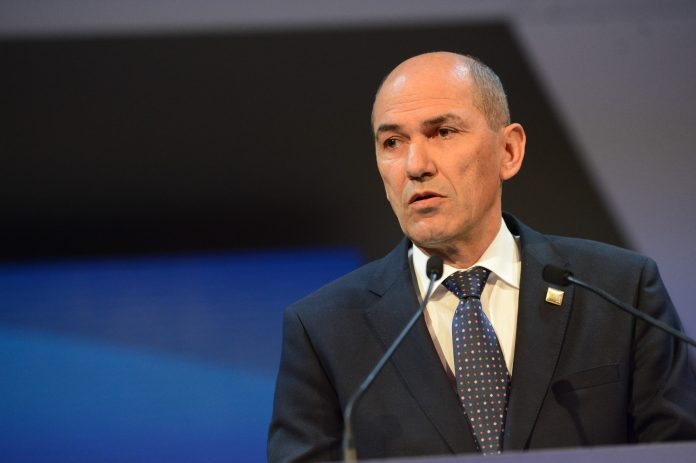Slovenia’s president has announced plans to offer a mandate to Janez Janša to form a government. The right-wing opposition leader’s Slovenian Democratic (SDS) party won the most votes in the June 3 parliamentary elections.
President Borut Pahor said Janša should be given a chance to gather a parliamentary majority after his anti-immigration SDS won some 25% of the vote.
The centrist party of Marjan Sarec finished second with 13% of the vote. Finishing third were the Social Democrats of Dejan Zidan, with 10%.
According to media reports, SDS needs to link up with at least two other parties to gain a majority. But most other parties that have made it into the 90-member parliament have ruled out a coalition with Janša because of his extremist views.
“We will probably have to wait for some time… before serious talks on a new government will be possible,” Janša told reporters after he cast his vote.
“I am not obliged to award the mandate to the relative winner of the election, but I will do so because I strongly believe in democracy,” Pahor told the Delo newspaper.
Janša, who was prime minister from 2004 to 2008 and from 2012 to 2013, had said he would cut taxes and speed up privatisation.
In a separate report, The New York Times noted that the outcome of the June 3 election is that Slovenia – a European Union member since 2004 and a user of the euro since 2007, could line up politically with Hungary, which re-elected the right-wing populist Victor Orban as prime minister in April, and Austria, where a far-right party has emerged as a strong political force.
On June 3, he called on parties on the left and right to join him in a new government “to face internal and external challenges together”.
In another report, Deutsche Welle (DW), Germany’s international broadcaster, noted that some 500,000 migrants crossed through Slovenia in late 2015 and early 2016 along the so-called Balkan route, since largely closed by patrols and fences.
Slovenia, however, did not take in many refugees. It rather acted as a transit country.

